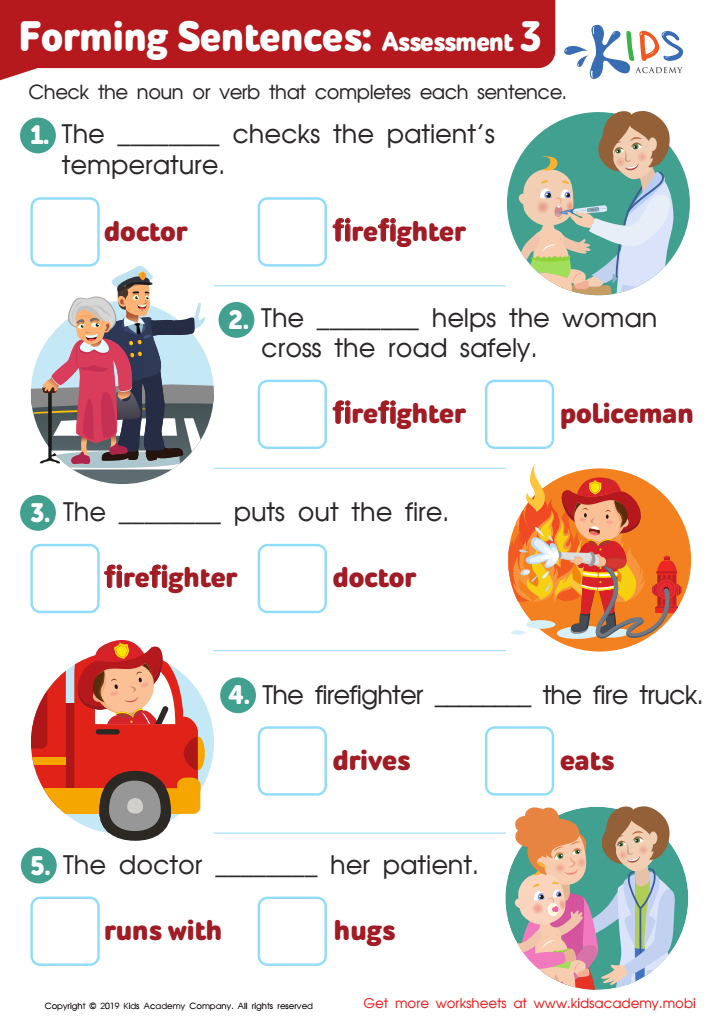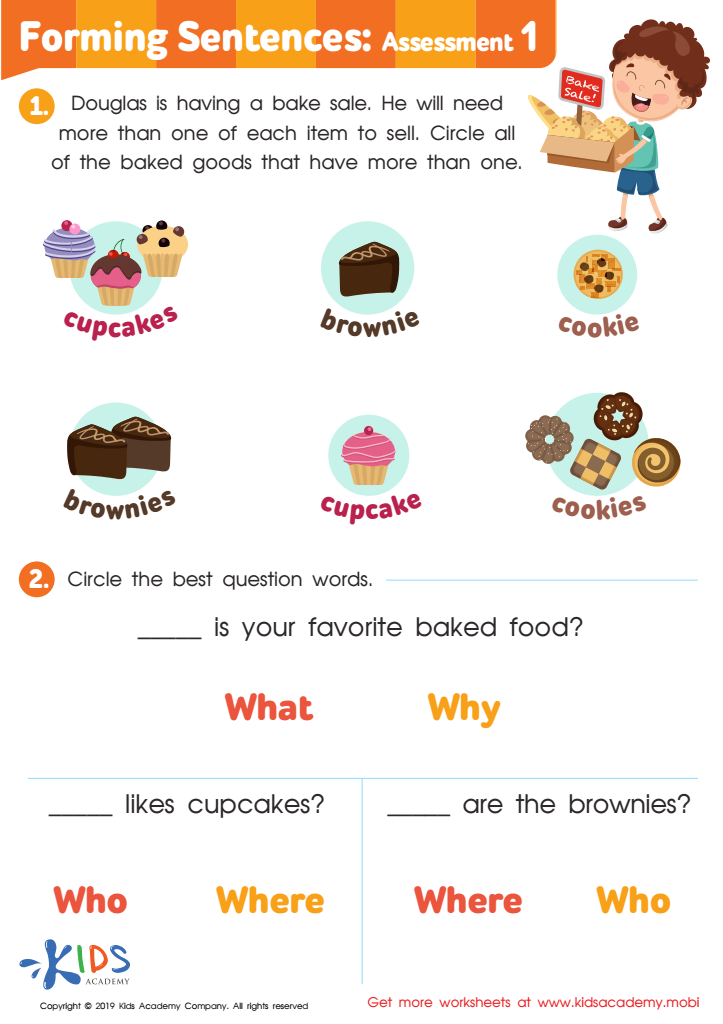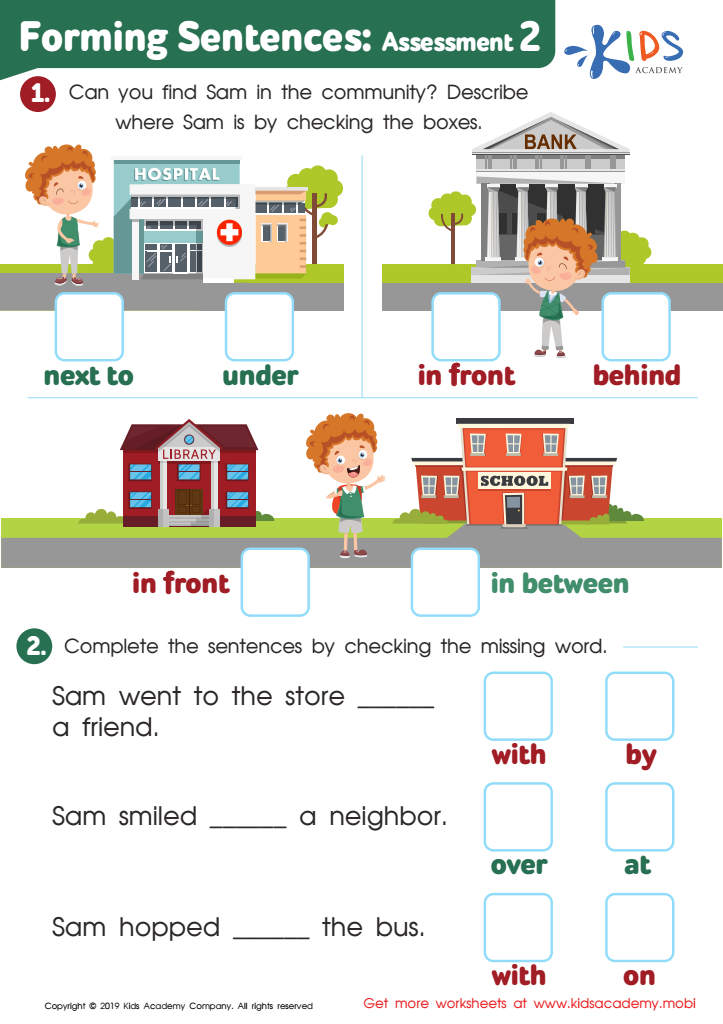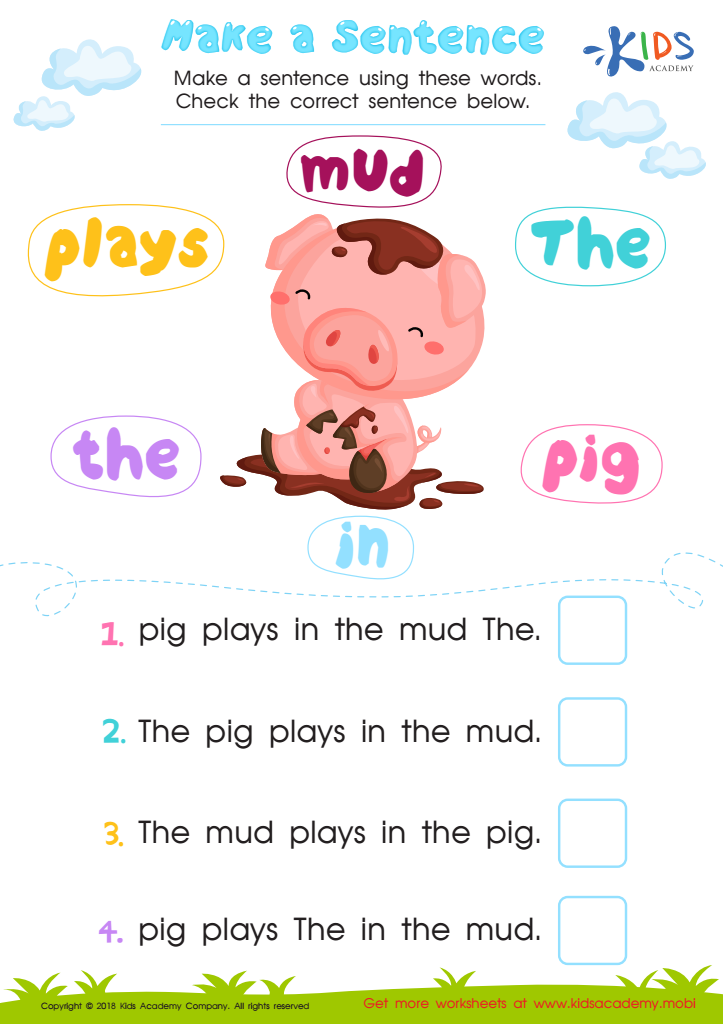Grammar Worksheets Activities With Answers for Ages 3-6
4 filtered results
-
From - To
Discover our engaging Grammar Worksheets Activities, designed specifically for children aged 3-6! These specially crafted worksheets make learning grammar fun and interactive, fostering language development in young learners. Each activity is tailored to suit early childhood education, featuring colorful illustrations and simple instructions that promote essential skills. With answer keys included, teachers and parents can easily assess progress and provide guidance. Explore a variety of topics, from basic sentence structure to parts of speech, ensuring a well-rounded foundation in grammar. Unlock your child’s potential with our enjoyable and educational resources, perfect for at-home or classroom use. Start your grammar journey today!


Forming Sentences: Assessment 3 Worksheet


Forming Sentences: Assessment 1 Worksheet


Forming Sentences: Assessment 2 Worksheet


Assessment: Make a Sentence Worksheet
Parents and teachers play a crucial role in laying the foundation for early literacy skills in children aged 3-6, and grammar activities are an essential part of this developmental process. Engaging in grammar activities tailored for young learners fosters language development, enhances vocabulary, and builds essential communication skills that are critical for success in school and beyond.
Early exposure to grammar helps children understand sentence structure, which in turn enables them to express themselves more clearly and effectively as they progress in their education. Additionally, grammar activities can be both fun and interactive, making learning enjoyable and fostering a positive attitude toward language.
These activities also encourage critical thinking skills as children learn to recognize parts of speech, such as nouns and verbs. Furthermore, they provide a solid foundation for writing skills by helping students understand how words fit together to form coherent thoughts.
Incorporating grammar activities into playtime or learning sessions can promote a love for language, which significantly impacts children's future literacy and academic success. Therefore, both parents and teachers should prioritize these engaging and educational activities, ensuring that children develop strong foundational skills in grammar and communication from an early age.
 Assign to My Students
Assign to My Students














